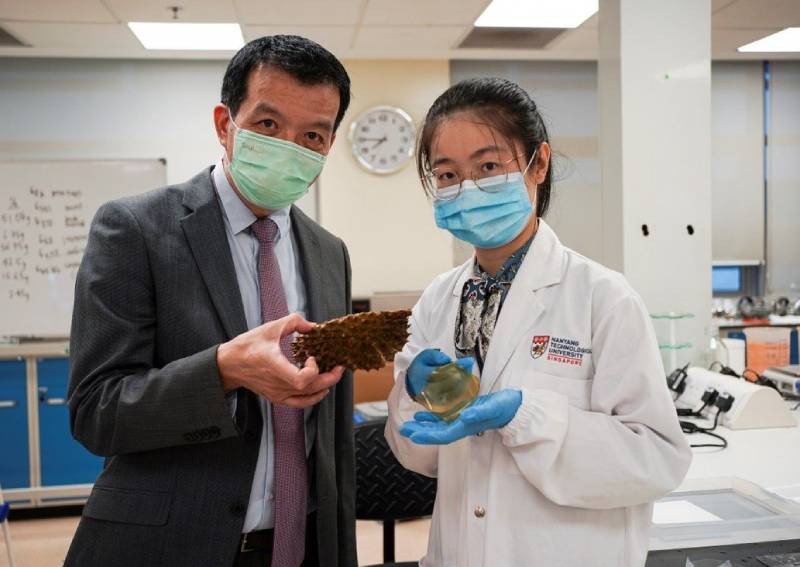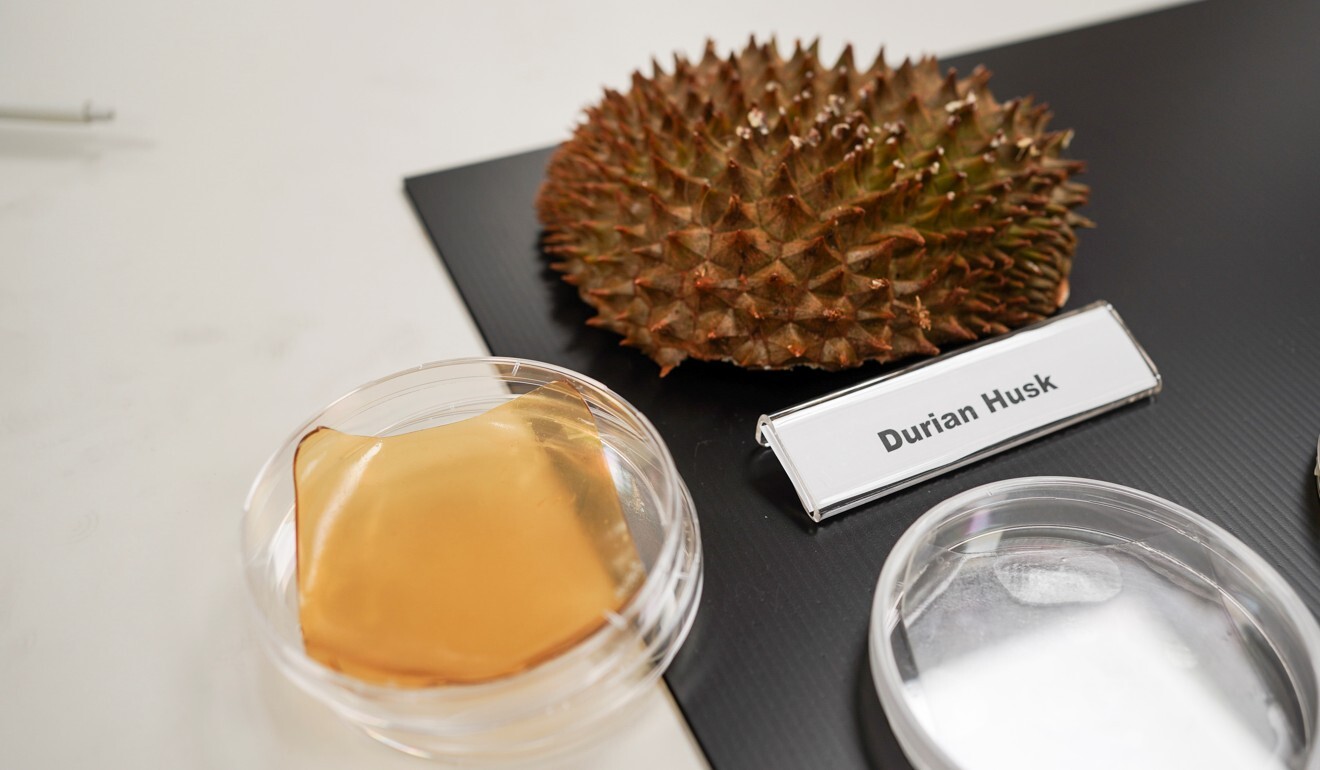Singapore scientists turn discarded durian husks into antibacterial bandages


AsiaOne has launched EarthOne, a new section dedicated to environmental issues — because we love the planet and we believe science. Find articles like this there.
Scientists at Nanyang Technological University in Singapore are tackling food waste by turning discarded durian husks into antibacterial gel bandages.
The process extracts cellulose powder from the husks after they are sliced and freeze-dried, then mixes it with glycerol. This mixture becomes soft hydrogel, which is then cut into bandage strips.
“In Singapore, we consume about 12 million durians a year, so besides the flesh, we can’t do much about the husk and the seeds and this cause environmental pollution,” said Professor William Chen, director of the food science and technology programme at the university.
The fruit’s husks, which make up more than half of the composition of durians, are usually discarded and incinerated, contributing to environmental waste.

Chen added that the technology can also turn other food waste, such as soy beans and spent grains, into hydrogel, helping limit the country’s food waste.
Compared to conventional bandages, the organo-hydrogel bandages are also able to keep wound areas cooler and moist, which can help accelerate healing.
The researchers say using waste materials and yeast for the antimicrobial bandages is more cost effective than the production of conventional bandages, whose antimicrobial properties come from more expensive metallic compounds like silver or copper ions.
A durian wholeseller, Tan Eng Chuan, said he goes through at least 30 crates of durians a day during durian season – as much as 1,800kg.
Being able to use the parts of the fruit that are ordinarily discarded, he said, was an innovation that would make enjoying it “more sustainable”.